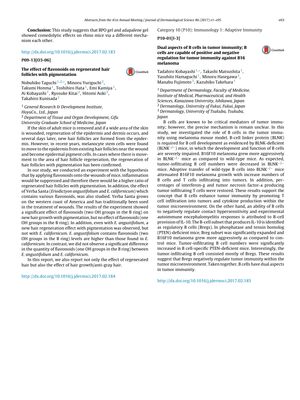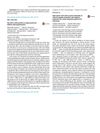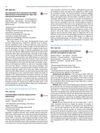Dual Aspects of B Cells in Tumor Immunity: Positive and Negative Regulation Against B16 Melanoma
April 2017
in “
Journal of Dermatological Science
”

TLDR B cells can both help and hinder the body's defense against melanoma.
The study investigated the dual roles of B cells in tumor immunity using a melanoma mouse model. It was found that B cells can enhance tumor immunity by promoting T cell infiltration and cytokine production within the tumor microenvironment. This was demonstrated by the fact that B16F10 melanoma grew more aggressively in B-cell linker protein (BLNK)-deficient mice, which have impaired B cell development and function, compared to wild-type mice. However, the study also revealed that a subset of B cells, known as regulatory B cells (Bregs), can negatively regulate tumor immunity. In phosphatase and tensin homolog (PTEN)-deficient mice, which had an expanded Breg subset, the melanoma grew more aggressively, and the tumor-infiltrating B cells were mostly Bregs. These findings suggest that B cells have both positive and negative regulatory roles in tumor immunity against B16 melanoma.




